How Kindness Became Our Forbidden Pleasure
by Maria Popova
“We are never as kind as we want to be, but nothing outrages us more than people being unkind to us.”
“Practice kindness all day to everybody and you will realize you’re already in heaven now,” Jack Kerouac wrote in a beautiful 1957 letter.“Kindness, kindness, kindness,” Susan Sontag resolved in her diary on New Year’s Day in 1972. And yet, although kindness is the foundation of all spiritual traditions and was even a central credo for the father of modern economics, at some point in recent history, kindness became little more than an abstract aspiration, its concrete practical applications a hazardous and vulnerable-making behavior to be avoided — we need only look to the internet’s “outrage culture” for evidence, or to the rise of cynicism as our flawed self-defense mechanism against the perceived perils of kindness. We’ve come to see the emotional porousness that kindness requires as a dangerous crack in the armor of the independent self, an exploitable outward vulnerability — too high a cost to pay for the warm inward balm of the benevolence for which we long in the deepest parts of ourselves.
Kindness has become “our forbidden pleasure.”
So argue psychoanalyst Adam Phillips and historian Barbara Taylor in the plainly titled, tiny, enormously rewarding book On Kindness (public library).
Taylor and Phillips write:
The kind life — the life lived in instinctive sympathetic identification with the vulnerabilities and attractions of others — is the life we are more inclined to live, and indeed is the one we are often living without letting ourselves know that this is what we are doing. People are leading secretly kind lives all the time but without a language in which to express this, or cultural support for it. Living according to our sympathies, we imagine, will weaken or overwhelm us; kindness is the saboteur of the successful life. We need to know how we have come to believe that the best lives we can lead seem to involve sacrificing the best things about ourselves; and how we have come to believe that there are pleasures greater than kindness…In one sense kindness is always hazardous because it is based on a susceptibility to others, a capacity to identify with their pleasures and sufferings. Putting oneself in someone else’s shoes, as the saying goes, can be very uncomfortable. But if the pleasures of kindness — like all the greatest human pleasures — are inherently perilous, they are nonetheless some of the most satisfying we possess.[…]In giving up on kindness — and especially our own acts of kindness — we deprive ourselves of a pleasure that is fundamental to our sense of well-being.
The most paradoxical part of the story is that for most of our civilizational history, we’ve seen ourselves as fundamentally kind and held kindness as a high ideal of personhood. Only in recent times — in large part thanks to Emerson — did the ideal of independence and self-reliance become the benchmark of spiritual success. The need for belonging has become an intolerable manifestation of vulnerability — we’ve stopped believing in our own kindness and the merits of mutual belonging, producing what poet and philosopher David Whyte has elegantly termed “our sense of slight woundedness.” On a mission to examine “when and why this confidence evaporated and the consequences of this transformation,” Taylor and Phillips write:
Kindness’s original meaning of kinship or sameness has stretched over time to encompass sentiments that today go by a wide variety of names — sympathy, generosity, altruism, benevolence, humanity, compassion, pity, empathy… The precise meanings of these words vary, but fundamentally they all denote what the Victorians called “open-heartedness,” the sympathetic expansiveness linking self to other.
Perhaps because open-heartedness is impossible without vulnerability — an open heart is an aperture through which the world can enter us, but also one through which exploitive and cruel forces can penetrate the softest core of who we are without obstruction — the original meaning of and longing for kindness has been calcified by our impulse for armoring and self-protection. Taylor and Phillips write:
Today it is only between parents and children that kindness is expected, sanctioned, and indeed obligatory… Kindness — that is, the ability to bear the vulnerability of others, and therefore of oneself — has become a sign of weakness (except of course among saintly people, in whom it is a sign of their exceptionality)… All compassion is self-pity, D. H. Lawrence remarked, and this usefully formulates the widespread modern suspicion of kindness: that it is either a higher form of selfishness (the kind that is morally triumphant and secretly exploitative) or the lowest form of weakness (kindness is the way the weak control the strong, the kind are only kind because they haven’t got the guts to be anything else). If we think of humans as essentially competitive, and therefore triumphalist by inclination, as we are encouraged to do, then kindness looks distinctly old-fashioned, indeed nostalgic, a vestige from a time when we could recognize ourselves in each other and feel sympathetic because of our kind-ness… And what, after all, can kindness help us win, except moral approval; or possibly not even that, in a society where “respect” for personal status has become a leading value.
And yet despite our resistance to kindness, some deeper, dormant part of us still registers it, still cringes upon encountering its absence. This paradoxical relationship with kindness, perhaps more so than anything else, explains the “outrage culture” of the internet:
We usually know what the kind thing to do is — and kindness when it is done to us, and register its absence when it is not… We are never as kind as we want to be, but nothing outrages us more than people being unkind to us. There is nothing we feel more consistently deprived of than kindness; the unkindness of others has become our contemporary complaint. Kindness consistently preoccupies us, and yet most of us are unable to live a life guided by it.
Embedded in our ambivalence about kindness is a special sort of psychological self-sabotage — by denying our own kind impulses, we also deny ourselves the powerful pleasure our acts of kindness produce. Taylor and Phillips consider how, given our natural inclination for kindness, we end up cheating ourselves of this deep spiritual reward:
The forms kindness can take … are partly learned from the societies in which we grow up, and so can be unlearned or badly taught or resisted… Children begin their lives “naturally” kind, and that something happens to this kindness as they grow up in contemporary society.
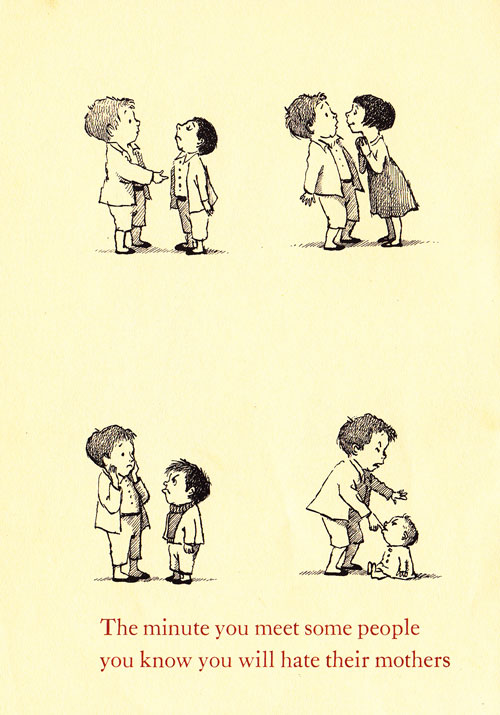
Illustration by Maurice Sendak from 'Open House for Butterflies' by Ruth Krauss. Click image for more.
Picking up where Rousseau left off a quarter millennium ago, Phillips and Taylor consider what it takes to nourish our natural benevolence, asserting that it must begin with embracing the very vulnerability from which kindness springs:
Everybody is vulnerable at every stage of their lives; everybody is subject to illness, accident, personal tragedy, political and economic reality. This doesn’t mean that people aren’t also resilient and resourceful. Bearing other people’s vulnerability — which means sharing in it imaginatively and practically without needing to get rid of it, to yank people out of it — entails being able to bear one’s own. Indeed it would be realistic to say that what we have in common is our vulnerability; it is the medium of contact between us, what we most fundamentally recognize in each other.
At some point in our lives, however, vulnerability becomes a threat and a trauma. Phillips and Taylor trace the developmental origin of that shift:
The child’s first, formative trauma is his growing acknowledgment of his need for others (in actuality the mother is as vulnerable to her need for her baby as the baby is to his need for her; parents need their children not to worry them too much). The needy child experiences a trauma of concern (“How can I take care of my mother to ensure that she takes care of me?”), which calls up his natural kindness; but this concern — and the later forms of kindness that emerge from it — is too easily turned away from. This turning away we call self-sufficiency, and when we want to pathologize it we call it narcissism. The pleasure of kindness is that it connects us with others; but the terror of kindness is that it makes us too immediately aware of our own and other people’s vulnerabilities (vulnerabilities that we are prone to call failings when we are at our most frightened). Vulnerability — particularly the vulnerability we call desire — is our shared biological inheritance. Kindness, in other words, opens us up to the world (and worlds) of other people in ways that we both long for and dread.
In a sentiment that echoes Phillips’s illuminating earlier work on why developing a capacity for risk-tolerance is essential to our self-reliance, Taylor and Phillips elegantly capture the dark counterpoint to our tendency to desire safety at whatever the cost:
If there is no invulnerability anywhere, suddenly there is too much vulnerability everywhere.[…]It is not that real kindness requires people to be selfless, it is rather that real kindness changes people in the doing of it, often in unpredictable ways. Real kindness is an exchange with essentially unpredictable consequences. It is a risk precisely because it mingles our needs and desires with the needs and desires of others, in a way that so-called self-interest never can… Kindness is a way of knowing people beyond our understanding of them.
But rather than a lament, undergirding these observations is a powerful message of hope: For all of its pervasive undertones of and platforms for outrage, contemporary culture — and the digital universe that is part of it — offers fertile new soil in which to grow the natural inclinations that give rise to the pleasure of communion and kindness. Taylor and Phillips capture this beautifully:
By involving us with strangers (even with “foreigners” thousands of miles away), as well as with intimates, [kindness] is potentially far more promiscuous than sexuality. But … the child needs the adult — and his wider society — to help him keep faith with his kindness, that is, to help him discover and enjoy the pleasures of caring for others… People have long known this, and long forgotten it. The history of kindness … tells the story of this knowing, and forgetting, and reknowing, as central to Western ideas about the good life.
In the remainder of the altogether wonderful and acutely necessary On Kindness, Phillips and Taylor explore how we can build a society that nurtures rather than corrupting our natural kindness by learning, from childhood on, to feel comfortable with the uncomfortable risks of making ourselves vulnerable enough to be kind. Complement it with Einstein on kindness, Brené Brown onthe crucial difference between empathy and sympathy, Adam Smith’sunderappreciated wisdom on benevolence, and George Saunders’s magnificentcommencement address on the power of kindness, then revisit Phillips’s insightful mediations on balance and the necessary excesses of life and the essential capacity for “fertile solitude”.
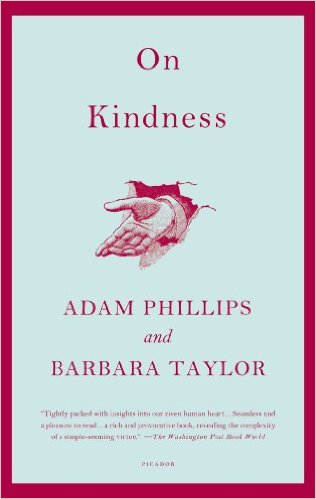
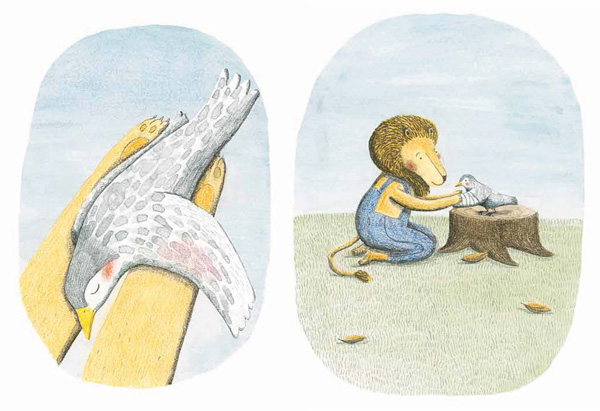
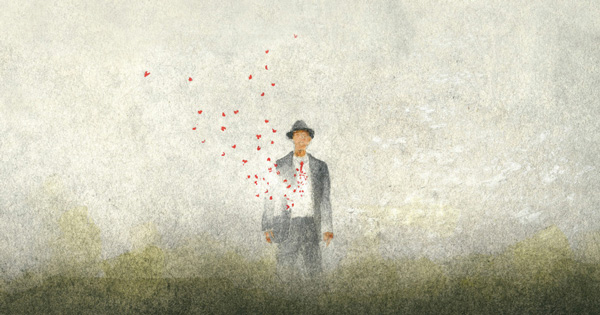
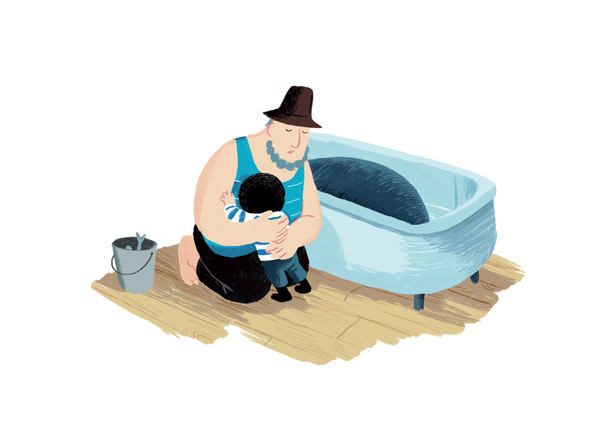
No comments:
Post a Comment